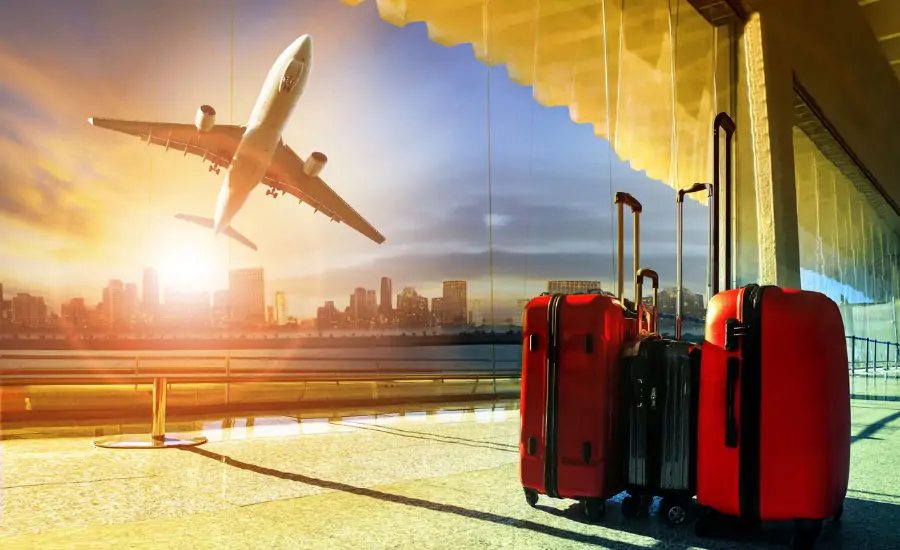Traveling, be it domestic or overseas, is always an exhilarating experience at any age. The prospect of exploring uncharted terrains and places one must have only read or heard about brings unparalleled joy.
This enthusiasm only amplifies when one’s parents accompany them on the trip. Traveling, especially overseas, with them can be a fun opportunity to bond and rekindle childhood memories. In 2023, nearly 37% of the travelers included senior adults. The numbers have significantly risen compared to the previous years.
If your aging parents are also traveling with you, it can seem thrilling and overwhelming at the same time. There are undoubtedly some things to take care of. In this article, we will discuss the five things to keep in mind while traveling abroad with elderly parents.
Get Doctor’s Clearance
Though this may apply to anyone, it is especially required for those who are advanced in age. You must ensure that your elderly parents have their doctor’s green signal to travel long distances.
For an international trip, another thing to keep in mind is any destination-specific vaccines or medications that may be imperative. Besides the COVID-19 vaccine, which is mandatory in most countries, there may be others you need to be aware of. These include hepatitis B, diphtheria, yellow fever, etc.
According to the Centers for Disease Control and Prevention (CDC), it is best to get vaccinated at least a month before the travel plans. This will allow the body to build up the immunity required, especially since we’re talking about seniors.
Under some circumstances, the medical examiner may not provide clearance for travel, including heart attack, extreme hypertension, and unstable angina. Such issues, if neglected, may escalate during the trip. Hence, a visit to your parent’s physician before travel planning is a must.
Take Precautions Against Common Age-Related Conditions
There are certain health conditions commonly associated with age, including diarrhea, respiratory issues, and stress urinary incontinence. If your senior parents suffer from any of these, it’s important to ensure thorough precautionary measures during travel.
Let’s take the example of urinary incontinence or an overactive bladder. This condition is characterized by involuntary leakage of urine, thus impacting an individual’s health and quality of life. It is mostly prevalent among older adults, especially women.
The National Institutes of Health states that nearly 40% of women aged 55 years and above complain of this issue. If your mother also has this problem, make sure they have all that they need during the trip. One solution for an overactive bladder among women has been the transvaginal mesh.
It is a surgically implanted mesh to strengthen the urethra. This is said to take the pressure off of the bladder, thereby providing relief from stress incontinence. In case you’re considering this solution, keep in mind that it has some serious complications involved. According to TorHoerman Law, women have complained of issues like extreme pain, organ perforation, infection, bleeding, and mesh erosion.
If one or two such cases occurred, it could be excusable. However, over 100,000 of these have been reported under the vaginal mesh lawsuit. Formerly a class-action multi-district litigation (MDL), this lawsuit has almost been settled. Even so, attorneys are accepting new case filings.
We would recommend talking this through with the healthcare practitioner. Other surgical alternatives like biological graft repair exist. If your mother is able, let them participate in kegel exercises to strengthen the pelvic floor muscles.
As for men, some solutions would be inflatable artificial sphincters, pelvic floor exercises, and bulking agents. This is just one example. If there are any other such age-related conditions, ensure your parents travel only after receiving proper aid.
Schedule the Itinerary Around Their Needs
While traveling with older adults, it is crucial to schedule your itinerary around their needs. One common example would be meal hours, which must be fixed so that your parents can have their medication on time.
Besides those, seniors need proper rest, be it an afternoon nap or sound sleep at night. The National Institute of Aging recommends at least seven to nine hours of sleep each night. We understand that they may struggle with sleep once in a while.
However, your parents’ sleep routine should remain undisturbed even during the trip. Try to keep their rest periods completely free. Refrain from planning too many activities in a day so that they’re not overly exhausted. Let them take it easy and use relevant means of transportation to limit their need for walking.
Buy Travel Insurance
Travel insurance for seniors is specifically designed to meet the needs of those aged 60 and above. This will keep your elderly parents protected against any medical emergency, robbery, loss of travel documents, etc.
If any of these occur in the middle of the trip, recovering from such an incident can be challenging. Travel insurance for seniors comes with benefits exclusively related to a senior individual’s health risks and age. As such, they may be eligible for doctor visits, surgical care, ambulance services, etc.
Even as you travel with them, you can be at peace knowing that your parents are sufficiently covered against any contingencies.
Incorporate Downtime During the Trip
When you plan the daily schedule for your trip, do not make it jam-packed on any given day. If there are places or activities you fear missing out on, extend your trip to a couple more days. It is important to incorporate downtime while traveling with elderly parents.
They may agree with you enthusiastically but later struggle to keep up with the grueling pace. In a worst-case scenario, a hectic schedule may adversely affect your parents’ health. Wouldn’t it all be a whole lot better if the trip included scheduled breaks and downtime for relaxation?
Finally, don’t let your aging parents do their packing all by themselves. With age, memory and health both begin to get frail. At the least, you can prepare an organized packing checklist for them to follow. Up to a certain age, a rudimentary mental checklist may work, but time makes one’s brain less and less reliable.
Therein, include a list of all essentials, from the prescription medicines to any creature comforts your parents may enjoy. If required, write against each item whether it is to be placed inside the carry-on or the check-in luggage.
This will streamline the trip and allow your parents to leave the home stress-free. As for the rest of the journey, they will enjoy the confidence of having you by their side every step of the way.
We hope these tips have eased out some of the stress that traveling with elderly parents may accompany. Just stay calm and patient, maintaining an open mind to any changes required. Remember that your parents are equally excited and will value this opportunity to spend quality time. So, have fun, stay safe, and make a torrent of memories to live by.










